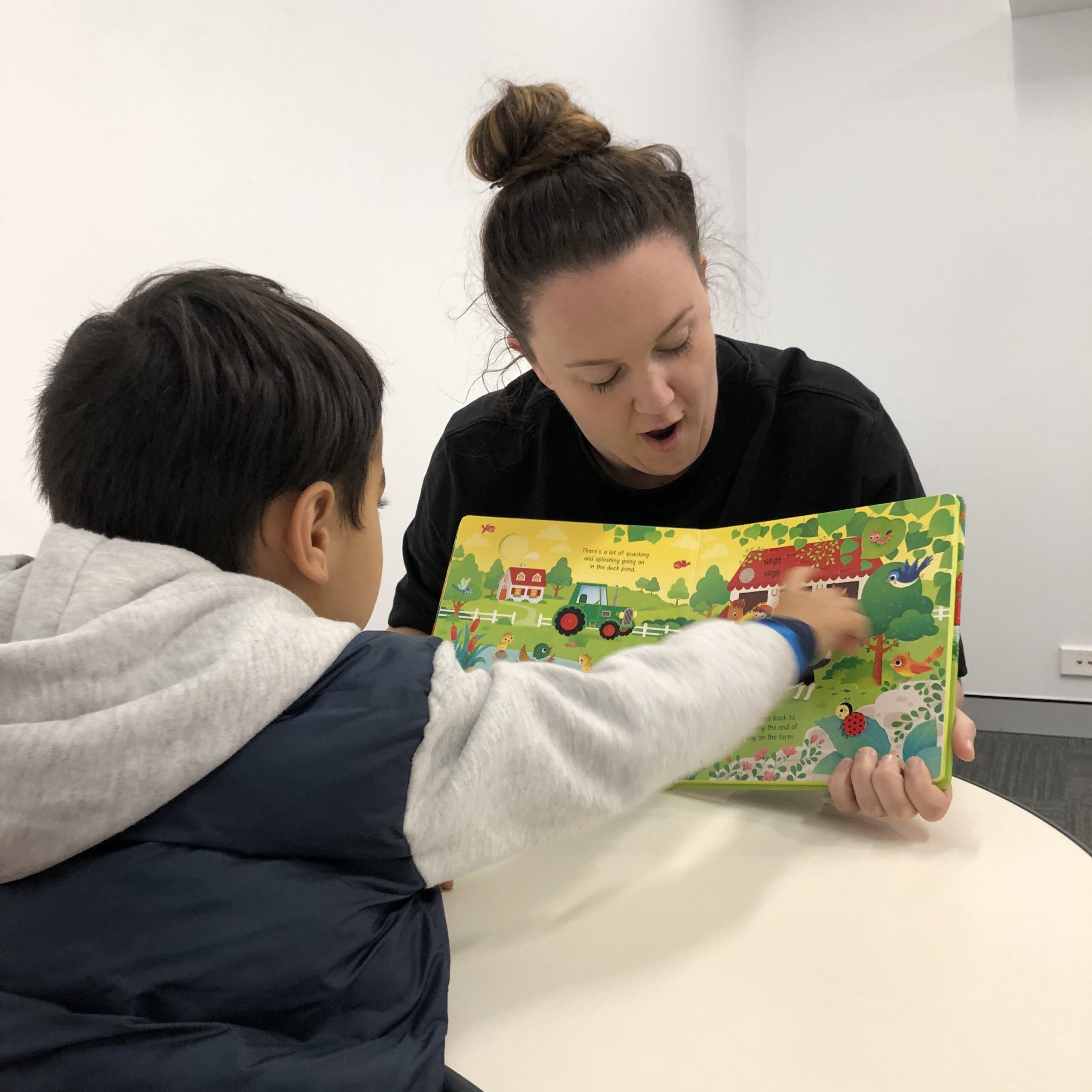
How to Help Your Toddler at Home Who Has Delayed Speech and Language
If your toddler has a speech and language delay, you might feel concerned and eager to support their development. Our Speech Pathologists in Bondi Junction and Mascot frequently get phone calls from concerned parents. While professional intervention is essential, there are also many effective strategies you can implement at home to help your child progress. Here’s a detailed guide on how to support your toddler’s speech and language development.
Understanding Speech and Language Delays
Speech and language delays can manifest in various ways. Speech delays refer to difficulties with producing sounds and words, while language delays involve challenges with understanding and using words to communicate. It’s important to recognise the signs and understand that every child develops at their own pace.
Creating a Language-Rich Environment
A language-rich environment encourages your toddler to engage in communication naturally. Here’s how to create one:
1. Talk Frequently
- Narrate your daily activities: Describe what you’re doing throughout the day. For example, “We’re putting on your shoes now” or “Let’s wash your hands.”
- Use simple, clear sentences: This helps your child understand and imitate your words.
2. Read Together
- Make reading a daily routine: Choose age-appropriate books with colourful pictures and simple text.
- Interactive reading: Ask questions about the story and pictures, encouraging your child to point, name, and describe.
3. Sing Songs and Rhymes
- Incorporate music and rhymes: Sing nursery rhymes and songs with repetitive phrases and melodies.
- Use hand movements: Actions like clapping or waving help reinforce the words and make it more engaging.
Encouraging Communication for a Toddler with Speech and Language Delay
1. Model Speech
- Speak slowly and clearly: Use proper pronunciation and simple sentences.
- Repeat and expand: If your child says a word, repeat it and add more information. For example, if they say “car,” you can say, “Yes, a red car.”
2. Imitate Your Child
- Mimic their sounds: If your child makes a sound or babbles, imitate it and add a new sound or word.
- Turn-taking games: Engage in activities that require taking turns, such as rolling a ball back and forth, to develop conversational skills.
3. Use Gestures
- Pair words with gestures: Use hand signs, facial expressions, and body movements to reinforce spoken words.
- Encourage pointing: Ask your child to point to objects they want or are interested in.
Building Vocabulary
1. Label Everything
- Name objects around the house: Consistently label items in your environment, such as “chair,” “cup,” or “dog.”
- Use descriptive words: Include colours, sizes, and actions to expand vocabulary. For example, “big red ball” or “running dog.”
2. Play Naming Games
- Picture cards: Use flashcards or picture books to play naming games, asking your child to identify familiar objects.
- Sorting activities: Group toys or objects by category and name them as you sort together.
Promoting Social Interaction
1. Encourage Playdates
- Arrange playdates: Provide opportunities for your child to interact with peers, which helps develop social and communication skills.
- Supervised interaction: Be present to guide and model appropriate interactions during playdates.
2. Role-Playing Games
- Pretend play: Engage in role-playing activities like playing house, doctor, or grocery store, which encourages dialogue and imaginative use of language.
- Use props: Incorporate toys and everyday items to make pretend play more interactive and vocabulary-rich.
Utilising Everyday Activities for a Toddler with Speech and Language Delay
1. Involve Your Child in Daily Routines
- Mealtime: Talk about the food, describe what you’re doing, and ask your child to name or choose items.
- Bath time: Use this opportunity to discuss body parts, actions like washing and pouring, and sensory experiences.
2. Grocery Shopping
- Make it educational: Name items, discuss colours and sizes, and involve your child in simple tasks like finding or choosing products.
When to Seek Professional Help
While these strategies can be very effective, it’s important to seek professional help if you notice significant delays or lack of progress. Consult with a paediatrician or a speech pathologist for a comprehensive evaluation and personalised intervention plan.
Conclusion
Supporting a toddler with speech and language delays requires patience, consistency, and creativity. By creating a language-rich environment, encouraging communication, building vocabulary, promoting social interaction, and utilising everyday activities, you can make a significant impact on your child’s development. Remember, early intervention and proactive involvement are key to helping your child reach their full potential.
At OneOnOne Children’s Therapy, our team of Speech Pathologists, Occupational Therapists, Certified ESDM Therapists, and Psychologists specialise in helping children with speech and language delays. Contact our Bondi Junction and Mascot clinics to schedule an evaluation and learn how we can support your child’s developmental journey.
For more information or to book an appointment, visit our website, email us or call us. Together, we can help your child thrive and communicate effectively.
